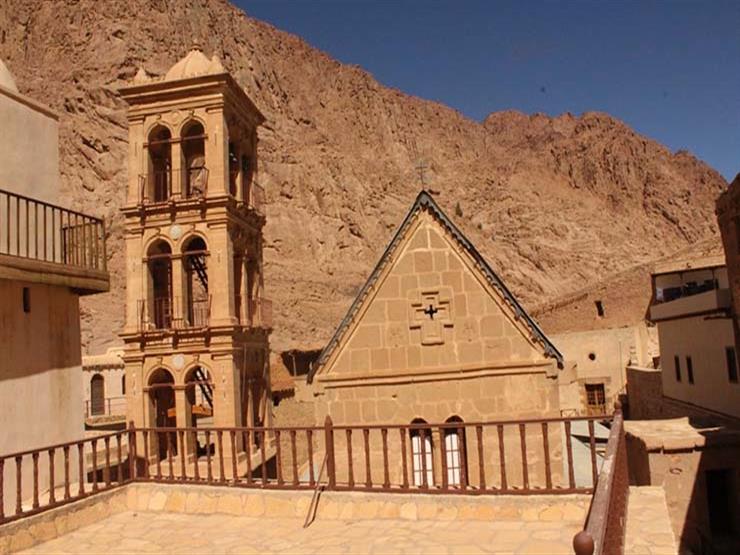The Egyptian presidency has reaffirmed its full commitment to preserving the unique and sacred religious status of St. Catherine’s Monastery in South Sinai, ensuring this status remains untouched.
In a statement released Thursday evening, the Egyptian presidency stressed that the recent judicial ruling regarding the monastery reinforces this status and aligns with what President Abdel Fattah El-Sisi affirmed during his recent visit to Athens on May 7th. The presidency underscored the importance of maintaining the “close and fraternal relations between the two countries and brotherly peoples, and ensuring they are not harmed.”
These developments follow reports circulated months ago that alleged the South Sinai Governorate was attempting to reclaim the monastery’s land, which belongs to the Greek Orthodox Church, after evicting and expelling the monks, including the Greeks who oversee the monastery.
Recently, the Ismailia Court of Appeal’s “El Tor Circuit” issued its ruling on the lawsuit concerning the disputed land plots between the South Sinai Governorate and St. Catherine’s Monastery. The court affirmed the right of those affiliated with St. Catherine’s Monastery to utilize the monastery and the archaeological religious sites in the St. Catherine area, with the state retaining ownership of these sites as public property. This is based on the understanding that those affiliated with the monastery are present in their religious capacity, performing their religious rituals under the leadership of the Monastery’s Metropolitan, appointed by Presidential Decree No. 306 of 1974, and that the Supreme Council of Antiquities oversees these archaeological sites.
Built in 548 AD in South Sinai, Saint Catherine’s Monastery is considered one of the oldest monasteries in the world, holding immense religious and historical significance. After rumors spread about the monastery’s evacuation and sale, the Egyptian government quickly denied these claims months ago. President El-Sisi also emphatically refuted these allegations, affirming the state’s commitment to protecting the monastery and respecting religious pluralism in Egypt.
During his visit to Greece this month, President El-Sisi emphasized that the relationship between Egypt and Saint Catherine’s Monastery is an eternal contractual relationship that cannot be touched. He expressed his annoyance at the circulation of these rumors, noting that the Egyptian state respects the religious sanctities of all denominations.
The crisis concerning the monastery began months ago. Last October, the South Sinai Governorate confirmed the falseness of the rumors circulated on social media regarding a threat or plan to evacuate the monastery.
The monastery belongs to the Greek Orthodox Church and is under the supervision of the Greek Ambassador. It is located on the slopes of Mount Sinai, where Moses received the Ten Commandments from God. It is one of the oldest continually operating monasteries in the world, also known as the Monastery of Saint Catherine, though its official name is the “Sacred Monastery of God-Trodden Mount Sinai.” It was built by order of the Byzantine Emperor Justinian I between 548 and 565 AD to house the monks who had been living in the Sinai Peninsula since the fourth century AD.
The monastery includes multiple structures, the most important being the Church of the Transfiguration, which itself contains nine smaller chapels. One of these chapels is the Burning Bush Chapel, where God spoke to the Prophet Moses.
The Egyptian Cabinet also issued a statement last November to address the controversy surrounding the monastery and alleged plans for its evacuation coinciding with the area’s development.
Furthermore, the recent judicial ruling mandated the respect of contracts executed between the local unit of Saint Catherine City and the Monastery concerning certain plots of land utilized by those affiliated with the Monastery. This effectively denies any encroachment on these lands.
The court also stated that the remaining disputed land plots are natural protectorates and all are public state property, meaning they cannot be disposed of or acquired through prescription. No contracts have been issued for these lands by the relevant authority.
Egypt pledges full protection for historic St. Catherine’s Monastery Egypt Independent.
Read More Details
Finally We wish PressBee provided you with enough information of ( Egypt pledges full protection for historic St. Catherine’s Monastery )
Also on site :

